|

Prayer Flags
Amdo, Tibet, 2001
Watching and Waiting
Steve McCurry
Soulcatcher Studio
via
_______________________
To Juan at the Winter Solstice
Robert Graves
There is one story and one story only
That will prove worth your telling,
Whether as learned bard or gifted child;
To it all lines or lesser gauds belong
That startle with their shining
Such common stories as they stray into.
Is it of trees you tell, their months and virtues,
Or strange beasts that beset you,
Of birds that croak at you the Triple will?
Or of the Zodiac and how slow it turns
Below the Boreal Crown,
Prison to all true kings that ever reigned?
Water to water, ark again to ark,
From woman back to woman:
So each new victim treads unfalteringly
The never altered circuit of his fate,
Bringing twelve peers as witness
Both to his starry rise and starry fall.
...(more)
_______________________
Four Seasons Of the Year
Anna Akhmatova
Translated by Yevgeny Bonver
I shall return today right there,
Where I had been at spring.
I’m neither sorry, nor unfair -
I only darkness bring.
It’s very deep, it’s like velvet,
It’s dearest to us
Like a dry leaf from a tree fled,
Like a wind’s whistle, that’s lone spread
Over the smooth of ice.
Collection Of Poems by Anna Akhmatova
Friendship in the time of terrorNadezhda Mandelstam's unique personal tribute to poet Anna Akhmatova Felix Philipp Ingold
... she was prohibited from publishing, forced to eke out an existence, mostly living in other people's apartments, places of asylum, emergency accommodation. The body of work that she was able to garner in the midst of her extreme suffering in life and love is a unique and varyingly orchestrated requiem. The fact that the poet was officially and publicly reviled as "half whore, half nun" in the post-war Stalinist period is certainly due to the aura and exalted image that enveloped her, and which was to be maligned at all costs - because it posed an intolerable provocation to the Soviet literary scene.
Among those who accompanied Anna Akhmatova throughout the "century of the wolves" and enjoyed her steadfast trust was Nadezhda Mandelstam. Ten years her junior, this friend - the wife and biographer of poet Ossip Mandelstam - weathered with Akhmatova the arbitrariness of power, persecution, deprivation, evacuation and also the bickering of the menage a trois. And in the process she learned that in the face of extreme circumstances, only those who refuse to to become slaves of fear are able to survive. Whoever is able to master this fear - for one's life - will maintain his individual integrity and freedom, will remain victorious, even if falling ultimately victim to oppression.
(....)Side by side the two women withstood two world wars, two revolutions, a civil war, multiple waves of terror and purges as well as an unparalleled gradual destruction of culture. That they not only managed to survive this "time of the plague" - in contrast to so many of their relatives and acquaintances - but were also able at times to experience it as a "time of celebration", Mandelstam attributes to the power of eros and art, and primarily poetry. Each new wave of force exercised by the state gave rise to a mass of sex affairs, divorces and remarriages among the Soviet population; terror produced something of an erotic paradise as an alternate world, a final refuge where one's own fantasy and choice could still prevail. ...(more)
via Pierre Joris
_______________________
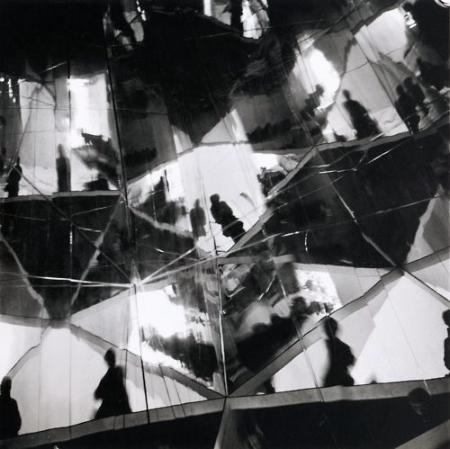
Montreal World’s Fair
Canada, 1967
Eva Besnyö
via
_______________________
“I Versus I?”
Matthew Specktor
la review of books
“Defying a multitude of bizarre projections, or submitting to them, would seem to me at the heart of everyday living in America, with its ongoing demand to be something palpable and identifiable.”
– Philip Roth
All of us have been given a certain amount of time to waste. Some we fritter in the old-fashioned ways: by breathing, staring at dull panoramas, playing computer solitaire, or watching CSI. Most of it, however, we now waste on social networking sites: Facebook, Twitter, or whatever green alternatives spring up to offer a sop to our need to be seen, what used to be called loneliness. On Twitter, or Facebook, we serve ourselves up in miscellaneous detail, presenting our epigrams and aphorisms and photographs, our urbane or intemperate responses to others. (Hopefully not too intemperate. We are all politicians now.) Consciously or otherwise, we stretch ourselves into flattering (even if, at times, deliberately ugly) postures: We spend time trying to curate, to use that buzzy term, ourselves. Or “selves.” It’s hard to say which iteration deserves to be considered ironically these days, the one that takes fabulous vacations and lets the world in on its Spotify playlist or the other, the sad sack of skin that slumps in an ergonomic chair. Either way, almost everyone has both. It’s a rare holdout by now who won’t traffic in @ symbols and hashtags, who doesn’t consider all but the most self-embargoed information (I suppose “@____, I have herpes” is still an uncommon move) fodder for broadcast. Fair enough. I won’t get into the ethics, or aesthetics, of undersharing, but I will say that those fusty souls, fetishists of privacy or 20th century manners, who don’t feel a need to display their dinner plates to the world often find themselves hijacked — by @Abe_Vigoda, for instance, or @Wendi_Deng. Even those who thrive on electronic display are sometimes hijacked too: In addition to @kimkardashian, there exists @_kimkardashian (with 35,000 followers, to the other’s 12,000,000), @kimdashteam, @kimkardahian, @kimkardash … It’s no wonder, then, that we are often confused by impostors, delighted by sock puppets, and relieved — most of us, anyway — that we remain singular. Er, duplicate. Triplicate, if you count LinkedIn....(more)
_______________________

reading
Steve McCurry
_______________________
Dark Matter
Henry Israeli
failbetter
(....)
This is a dark poem, I’m sorry.
I wanted to write a light poem about dark matter.
Something about all the dark matter that makes up the vastness
of the universe, but cannot be seen.
To be precise, dark matter is not dark at all.
It’s closer to transparent.
It’s everything that cannot be seen
but still exists in between what can be.
The young man who ran over my mother
said he didn’t see her. I question the truth
behind this statement. Is not looking the same
as not seeing? Matter exists between everything
we see, even if we don’t see it.
Perhaps we are not looking.
...(more)
via Riley Dog
Henry Israeli in Perihelion, drunken boat and Words Without Borders
_______________________
We are lost from loss, utterly adrift.
In truth, we cannot experience our loss. We do not feel it.
We cannot speak sincerely of our lost sincerity.
Spurious is back at work on Wittgenstein Jr

photo - mw
_______________________
Gray Weather
Robinson Jeffers
It is true that, older than man and ages to outlast him, the Pacific surf
Still cheerfully pounds the worn granite drum;
But there’s no storm; and the birds are still, no song; no kind of excess;
Nothing that shines, nothing is dark;
There is neither joy nor grief nor a person, the sun’s tooth sheathed in cloud,
And life has no more desires than a stone.
The stormy conditions of time and change are all abrogated, the essential
Violences of survival, pleasure,
Love, wrath and pain, and the curious desire of knowing, all perfectly suspended.
In the cloudy light, in the timeless quietness,
One explores deeper than the nerves or heart of nature, the womb or soul,
To the bone, the careless white bone, the excellence.

Robinson Jeffers
b. Jan. 10, 1887
_______________________
A World According to G.W.
On Grzegorz Wróblewski
Anna Kaluza
Translated from the Polish by Elzbieta Wójcik-Leese
Jacket2
(....)
Wróblewski is not interested in formally offensive linguistic experiments; he does not set off to prove the literariness of literature, nor does he want to emphasize its representational character. He does not turn his poem into an object, the way concrete poets do; neither does he stress its materiality, which does not mean, however, that his texts are deprived of self-reflexivity. For him these aspects are of secondary importance. He does not want a lyric poem to recover traditional aesthetic values (such as experiencing and contemplating) or to restore traditional readings of poetry. Wróblewski does not seek to prove that reality is artificial, construed or simulated; nor does he wish to reveal secret dimensions of reality. Interestingly, he does not strive against high modernism and its perceptions of art: many of his poems offer some form of confession, though always framed by the understanding of art as resistance, not as affirmation. Neo-avant-garde inspirations can easily be noticed in Wróblewski’s opinions about the relationship between art/poetry and the whole human world (which is not identified with the linguistic medium) and in his convictions about the critical, contestational function of art in society.
...(more)
_______________________

Curlew II
1957
Barbara Hepworth
b. 10 Jan. 10, 1903
_______________________
Fog
Dorianne Laux
The first of us must have looked up at the night agog,
so many stars, so much light falling down, the bugs
back then big as fists, so many rivers and ponds clogged
with fish we skewered them on sticks, made a fire, bred dogs
from wolves to keep us warm, safe, pines wrapped in fog
or morning mist, the sheep braying beside us, groggy,
their bellies filled with wet grass, the feral pigs become hogs
in a pen, cloven hooves slathered in mud. We built jagged
fences to keep what we didn’t want out, what we did, in, logs
were dragged through a field by horses, a house rose, mugs
placed on a shelf, a table set with plates. Then the nagging
began: Who left the feedbag in the rain? Who forgot to plug
the hole with a rag? The children grew, little quagmires
we sank into. ...(more)
Burnside Review
thanks to The Page
Dorianne Laux at the Poetry Foundation and PennSound
Selections from the work of Dorianne LauxWeb Del Sol
_______________________

Pelagos
(1946)
Barbara Hepworth
_______________________
...many researchers have reached a conclusion that turns conventional wisdom on its head: Americans enjoy less economic mobility than their peers in Canada and much of Western Europe. The mobility gap has been widely discussed in academic circles, but a sour season of mass unemployment and street protests has moved the discussion toward center stage.
- Jason DeParle
_______________________

water under the bridge
photo - mw
_______________________
Nonesuch Radio : Nonesuch Mix

Dunes In Winter
Ian Hornak
_______________________
BlazeVOX: Winter 2011 issue
Poems
Sarah Kosch
from
I Am Finding—Getting to and exploring Tate Modern, March 8, 2011
III. A Memory (cemented)
This one was here last time. A box of half crosses and wood with receipts for sales I did not make. In my head it is
quiet except for a click and a rustle, and there is no one to block my view. I think it is a time machine and each
time-traveler has a time card to fill before they clock out and go home. A slip floats past the fence and into my
palm. It is in Spanish and I don’t know what it says, so I smile and put it back. I think it must mean beautiful things.
Then I read the sign on the wall.
I wish Brutalismo wasn’t so easy to translate.
Architecture and dictatorships can both be stark and cause disappearances. I hope the time-travelers escaped
unscathed. _______________________

selling books
al-Mutanabi street
Baghdad
Qamar Hashim
8 years old
_______________________
Thanatography
Spurious
(....)
Sinthome tells us how he recoils in horror when he is asked what is philosophy, or what his research is about. 'To ask what someone's research or philosophy is, is to ask them to simultaneously formulate a proposition and state the sense of that proposition. Yet I can say what I mean or mean what I say, but I cannot say what I mean and mean what I say.'
Wonderfully put: I only know what I'm working on once I've finished work; the preface to a book, making sense of the project as a whole, comes after the book is complete. I can only know the pro-ject as a re-ject, as Sinthome says; which means that it is forever impossible to know on what it is one is working.
...(more)
_______________________
The International Repository Of Regrets
Brad Zellar
Your Man For Fun In Rapidan
Since he lost his job as an aviation mechanic inthe late 1980s, Riggs has been a clerk at the International Repository ofRegrets. He hasn't had a good night's sleep in almost ten years.
The Repository, housed in a World War Two-era traindepot, is a vast place of bad light and spooky, institutional acoustics. Evenin the middle of the night --especially in the middle of the night-- it isalways crowded, and the mood there is generally sour and joyless. The crowd ispolyglottal, often dizzyingly so.
Some of the people who stand in the long lines aredead, shuffling in place in stepped-down shoes, often clutching photographs –orentire albums of photographs-- to their breasts. Many of the waiting have grownhoarse from a lifetime of rehearsing and fine-tuning their regrets. For themost part, they throw their cigarette butts and the wrappers from the vendingmachines on the scarred concrete floor.
The International Repository of Regrets is nowlittle but a purely bureaucratic facility, and offers nothing in the way ofdispensation, absolution, or second chances. Even as a repository it has longsince surrendered any claims of utility....(more)
_______________________

Home of the South Wind
1979
Acrylic on Canvas
Ian Hornak
(January 9, 1944 - December 9, 2002)
_______________________
Sunday Afternoon Croquet
Nyla Matuk
Trinity Bellwoods Park
I feel like a mad Roman emperor with a history of failures
at miniature golf. I’ll play at being truly imperious,
a Pimm’s-sipping sundowner
in a striped sweater with the entitlement to be that individual,
who can dismiss Torremolinos and
cruise the radio dial for swing jazz.
I celebrate Dominion Day, and say old bean.
I’ll bend forward, a gauche hobby farmer,
elphin green deviant bitchy lady,
aiming for tiny stations of the cross as the
Portuguese masquerade a masque
of pascal ecstasies and triumphs somewhere else in the park.
...(more)
The Toronto Review of BooksIssue Two | January 9, 2012 _______________________
This Ripe Moment
James Howard Kunstler
(....)
How quaint the current Republican jousting tournament will seem in a few months when real violence rides in on the zephyrs of springtime. Each new primary is like the unloading of a Ringling Brothers clown car. There is an inverse relationship between the seriousness of these times and the laughable personalities vying for a place in history. Are they running for high office or auditioning for the role of Parson Weems in a new Lifetime Network TV mini-series? Are you charmed by their absurd casual clothing? Comforted by their know-nothing jabber about the "game-changer" of shale oil and their sincere doubts about the climate change "story?" Is it morally satisfying to know that one or another of these candidates won't drink a beer? (They'd make good Ayatollahs.) In what sort of Creationist parthenogenetic incubator are such pietistic idiots hatched? What these sanctimonious pricks don't realize they are doing is destroying the very legitimacy of the idea that we're capable of governing ourselves per se....(more)
_______________________
@ronsilliman
Ron Silliman
The GOP race now could be characterized as White Men Living in the Past, except for the two who are living on other planets
_______________________
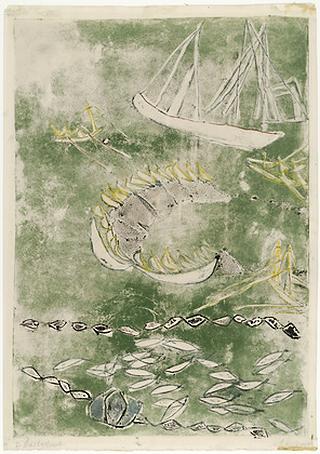
Herring Catch
(1938)
Rolf Nesch
_______________________
Philosophy / Awakenings
Avner Shapira reviews Walter Benjamin: A Philosophical Portrait, by Prof. Eli Friedlander
"Many people," Friedlander says, "emphasize the enigmatic and enchanting aspect of Benjamin's writings. They present him, as Hannah Arendt did, as a kind of pearl fisherman retrieving precious treasures from the depths. But the amazement at that marvelous uniqueness is also a sure way to isolate him and avoid becoming seriously involved in his thought."

Snake Handlers, Faith Healers of the 1940s
_______________________
Childhood’s Retreat
Robert Duncan
It’s in the perilous boughs of the tree
out of blue sky the wind
sings loudest surrounding me.
And solitude, a wild solitude
’s reveald, fearfully, high I’d climb
into the shaking uncertainties,
part out of longing, part daring my self,
part to see that
widening of the world, part
to find my own, my secret
hiding sense and place, where from afar
all voices and scenes come back
—the barking of a dog, autumnal burnings,
far calls, close calls— the boy I was
calls out to me
here the man where I am “Look!
I’ve been where you
most fear to be.”
_______________________
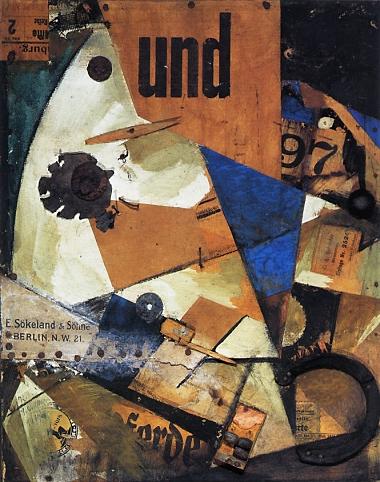
Das Undbild
[The And-Picture]
Kurt Schwitters
d. Jan. 8, 1948
_______________________
Ten Poems, 1940 to 1980
Robert Duncan
Jan 7, 1919
jacket
Some Terms
Dec. 1, 1973
re, res, real, realm, reality from thing, thingness, object, objective realize, to establish the
thingness. One aspect of the work of art or poem or creation is to realize what is thought and felt. The reality of the poem is a language reality. Its things are words.
Hence any poem has for each given reader (including the poet writing as reader) just that reality he finds in the words in their orders.
The only immediate res of the poem are its sounds. The sounding of the poem in turn mediates a potential realm of meanings.
act, actual, actualize, actuality.
There was actually a chair there. Tho I did not see it; tho I did not
believe there was
one; I was not sure there was on . . .
I actually saw a chair there. Tho there was no chair there. Tho I did not think I saw a chair there.
I actually thot I saw. I actually thot “I saw” I actually thot to see.
I pretended I thot I saw. I actually pretended I but imagined I
pretended.
We strive to bring into the actual what is real to us.
...(more)
_______________________
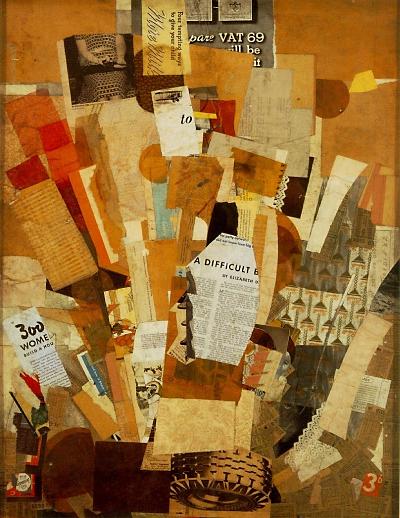
Kurt Schwitters
_______________________
The Correspondence of William Carlos Williams and Louis Zukofsky
John Latta
Isola di Rifiuti
(....)
... in a 22 December 1944 letter, Williams talks of reading a piece by André Breton, “one of those rarities—something simple coming out of an insensate complexity of method”—making something of an oxymoron attempt to do the dialectical work of defining. It’s a practiced move for Williams. I am thinking of how he works to nail down the shiny mercurial blob of the writerly “fit” (socked-in and stuck like a peg in a hole and sliding off into the vacuum-hatch of its own continual departure, motility’s grease) in the essay, “The Work of Gertrude Stein”:
Either, we have been taught to think, the mind moves in a logical sequence to a definite end which is its goal, or it will embrace movement without goal other than movement itself for an end and hail “transition” only as supreme.
Take your choice, both resorts are an improper description of the mind in fullest play.
If the attention could envision the whole of writing, let us say, at one time, moving over it in swift and accurate pursuit of the modern imperative at the instant when it is most to the fore, something of what actually takes place under an optimum of intelligence could be observed. It is an alertness not to let go of a possibility of movement in our fearful bedazzlement with some concrete and fixed present.
That movement stilled still moving, the present held forth in its hurtling between what’s gone and what’s arriving. It is precisely there where Williams repeatedly locates himself (hence the warnings against ga-ga experimentalism). ...(more)
_______________________
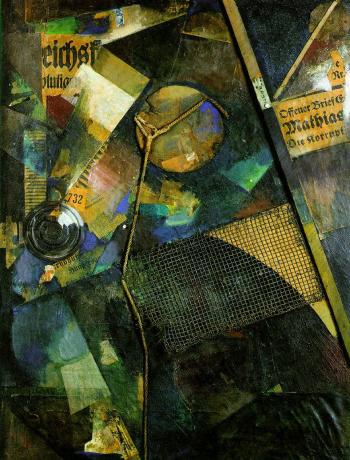
Merz Picture 25A
The Star Picture
Kurt Schwitters
1920
_______________________
On A Confederacy of Dunces
Joe Palmer
nth position
(....)
“Too much dialogue here, not enough action there” was Walker Percy’s first reaction to the novel. The accurate presentation of the peculiar speech of this story is its best feature, and like all great stories it starts in the middle of things and ends in the middle of things, arriving nowhere because it goes nowhere.
Thelma Toole knew in her bones that the book is good. Walker Percy, the literary and religious guru, had been asked by the dead author’s mother to read and appreciate the book left by the young suicide, John Kennedy Toole.
At the end of the story the protagonist of A Confederacy does not wind up on the funny farm, but he might as well end up in a nuthouse wherever he is headed, no matter where he goes, to Baton Rouge or to Morningside Heights. The human situation is no different in Louisiana, New York, or an asylum: everything is a mystery. We are puzzled, and then bored, by life’s confusions and tragedies. Life presents questions with no answers, and problems with no solutions. The experts hide behind only those few questions they can answer and the few problems they claim to solve. Has anyone not died finally lately in misery and despair?
A Confederacy of Dunces (1980) is an ugly book that is not about anything, and paradoxically it is about everything that people considered (fifty years ago) to be Politically Correct and still consider hot topics. It is grotesque, full of indignation and rage. You either love it or hate it. I hated it, yet I felt compelled to keep on reading about those pitifully stupid people. I do not like the novel, but I like to talk about it, for it appeared a generation after it should have, after the Sixties, the time period where it belongs in American culture. It is set in 1963, and should have been published then around 1966 along with other indispensable works that happened the last time America was awake - Catch-22, Cat’s Cradle, Cuckoo’s Nest, Dr Strangelove, Apocalypse Now, To Kill a Mockingbird, Silent Spring, Woodstock, Who’s Afraid of Virginia Woolf? and so on....(more)
_______________________
Beyond Privacy
Open Magazine 19. Art and and Public Domain
mediafire pdf
In 'Open' 19, the concept of privacy is examined and reconsidered from the legal, sociological, media theoretical and activist perspectives. Privacy is a right that protects one’s private life, a right that is not only established by law, but also has a political and a social significance. It can be experienced and observed differently by individuals and groups, depending upon their position in society and the desires and interests that are involved. In Open 19 focuses not so much on deploring the loss of privacy, but taking the present situation of ‘post-privacy’ for what it is and trying to gain insight into what is on the horizon in terms of new subjectivities and power constructions. With contributions by Daniel Solove, Maurizio Lazzarato, Rudi Laermans, Armin Medosch, Felix Stalder, Joris van Hoboken, Oliver Leistert Martijn deWaal, Rob van Kranenburg, Mark Shepard and Matthijs Bouw and Gio Sumbadze
_______________________
'I've Got Nothing to Hide' and Other Misunderstandings of Privacy
Daniel J. Solove

Gustave Doré
b.
January 6, 1832
Midway upon the journey of our life
I found myself within a forest dark,
For the straight-forward pathway had been lost.
_______________________
Ten Poems
Matthew Gagnon
conjunctions
Physique
Against an abridgement of light
you dispatch an outline.
This is a reading room
lettered and jeweled with happiness.
Only a complete silhouette
troubled by the tone of wanting
more than an aisle,
more than a coordinate of survival.
Among the winter scarves
no frozen constitution
keeps time along the metronome,
how we glide
transposing the torque of your ark,
undoing the simple quake
of inhibit, inhabit, burnishment.
This is a reading room
I’ve chiseled back
from an uncertain luminescence
scathed with revival.
The faint purpose of a torso
wire’s relief, charcoals
my graph of sky to a nocturne.
...(more)
Ten Poems
Matthew Gagnon conjunctions
_______________________
Excerpt from “Quantum Poetics: Writing the Speed of Light” (Part Four)
Amy Catanzano
presented by Jerome Rothenberg
(....)
If poetry is a matrix mechanics of language, how can interpretations of poetry be developed with certainty if a poem’s present state (while creating or experiencing it?) cannot be described without ambiguity? Conventional notions of meaning are dependent on linear notions of time, as meaning is arrived at, in time, after comprehension or examined experience. Most reading relies on linear notions of time, as well, since grammars often follow a progression that occurs before comprehension or examined experience is reached. However, poetry can usurp conventional interactions with time when the writer-reader experiences language outside of linear time, which might include time slowing, time speeding up, a sense of no time, or a sense of all times at once, where simultaneity occurs between time scales. Poems also work in tandem (toward unity and/or disjunction) with space in a way that is attentive to the spacetime of the poem’s medium, which transcends physical contexts such as the page, screen, or voice. In poetry, as in quantum mechanics, it might not be possible to forecast the future with certainty; any measure of a poem’s activity might only be described in terms of probability.
...(more)
_______________________
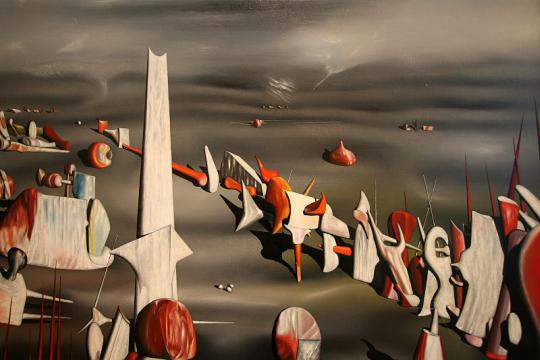 The Rapidity of Sleep
(1945)
Yves Tanguy
b. January 5, 1900
_______________________
Writing's Remove
Spurious
(....)
Blanchot makes a few scattered remarks on childhood in his work; it 'is itself fascinated', he writes in The Space of Literature: the child experiences the world without separating itsef from it as a subject. Too, the child is fascinated by its mother; it is not yet fully individuated. But this, presumably, is the experience of a youngchild; Blanchot's child already seems to inhabit the purpose filled world of the day in which the window, the curtain, his play space have a place.
What is it, then, that the child witnesses? Perhaps something of that fascinating dimension by which he was once entirely enclosed: that plenum marked by a wholly absorbed fascination which did not permit yet of a divide between the subject and the object of experience. He experiences an impossible return to an infancy for which he is already too old.
Perhaps one might say something similar for the writer, who is likewise close to the impersonal life of childhood, if there is such a thing....(more)
_______________________

Over London-By Rail
London: A Pilgrimage
Gustave Doré And Blanchard Jerrold
(1872)
_______________________
Peace Eye! Fug! A Long Talk With Ed Sanders
Alan Bisbort
literary kicks
(....)
Alan: People tend to think that the Beat Generation just sort of petered out and was replaced, or subsumed, by the hippie generation. Which really wasn’t true, especially in New York. It seemed that all the same people simply walked forward into the hippie scene, Allen Ginsberg, Peter Orlovsky, Gregory Corso, William Burroughts, etc., They were all there, just another wave of fashion … the best part is that the Beat sensibility brought an active rather than passive sensibility, or infusion, to the hippies.
Ed: They brought some good writing, too. Hippies could be pretty vaporous in their literature. You know, I figure it must have been around February 1967 that we began to see the changeover. Instead of someone sneering at you and calling you “a dirty Beatnik,” they were now calling you “a dirty hippie.” I remember when Allen Ginsberg came over to our house on Avenue A around this time and said, “Now I guess we’re going to have to be hippies.” Miriam wasn’t even sure what he was talking about.
It was a mysterious switch over. It went from tire-soled sandals to Merlin curved-toe shoes and gowns, and men wearing necklaces, which was a big deal for a man. Suddenly you have to wear a necklace, toe ring or go barefoot in the street, and burn incense. It was pretty strange. But the Beats ultimately prevailed. There are still conferences on the Beat Generation where young people come dressed all in black. It’s very interesting....(more)
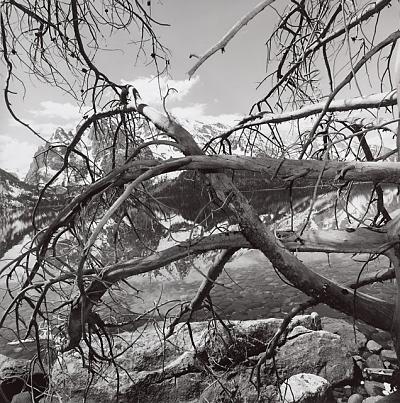
Grand Teton National Park
Lee Friedlander
1999
_______________________
That There is Writing
Spurious
(....)
There is thought as comprehension, the attempt to understand the world, and then the experience where thought is exposed to what thought and the thinker cannot enclose. There is the thinker who throws thought like a falcon up from his arm - who hunts by thought in obscure forests, and the subject of a thinking that seizes him in its talons. But both experiences of thought must be thought together: the hunter is hunted in turn; the forest crowds up and fills his vision and he is torn apart by a thought too great for him to bear.
We must begin with words, for Blanchot, in the midst of words, since it is language which grants the possibility of thought, of thinking. But this possibility is doubled by what is named by the impossible: the corridors of prose risk turns and detours; byways of thought become overgrown, and the forest path leads not to Heidegger's clearing but to a labyrinth of branches that cover the sky. The thinker is lost because he is lost from himself. Who is that wanders in his place, lost before he has composed a line?
...(more)
_______________________
Six Poems
Elizabeth Ross Taylor
archipelagoA Change of State
Was it a car?
A tree limb raked the house?
A lost wasp
battling bedroom ceiling?
Just time to wake up?
How do I? Not on purpose.
Calm surprise, a flower
unclosed.
A fine flower,
one foot in the grave,
stiff ankle, unsteady leg,
peering where to situate
next step.
But the way I burst up
from deeps, detach
a buried habitat,
re-enter,
a yes-but-little-lower than;
pink squalling efflorescence;
a hatching half old cilia,
half mutant April wings.
I read somewhere
just waking up can kill you.
Eleanor Ross Taylor
1920–2011
_______________________
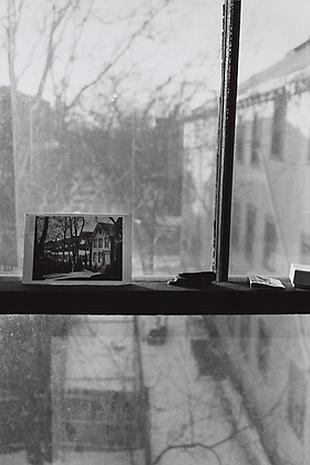
Lee Friedlander
1 2 3 4 5
_______________________
TWO LINES Online January 2012
Center for the Art of Translation
Metamorphosed
Marie-Claire Bancquart
Translated by Wendeline Hardenberg
Animals clipped into the boxwood trees
of the villas near Venice.
What if we were some deity’s boxwood trees
sculpted tenderly, with gentle shears?
The gloom inside us
would come out in tiny leaves
serried
with a heady scent.
Just like Ovid’s metamorphosed, we would be forgetful
of loves, of pursuits.
Basking in the glow of air that trembles in the sun
toward evening
when the humidity climbs beneath a verdant sky
we would feel our hearts
revive somewhat amid our branches
with that
of the trompe l’il people in the dining room frescoes
gossiping through the open window
just small talk, far from the bitterness of things.
...(more)
_______________________
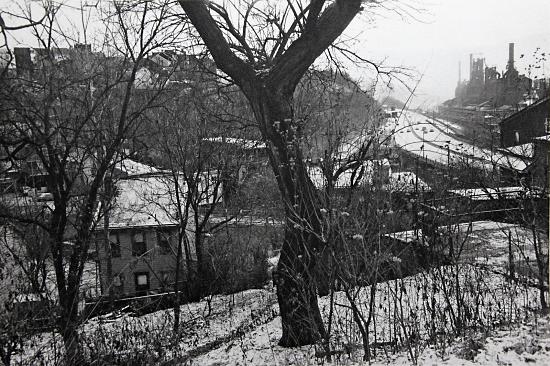
Lee Friedlander
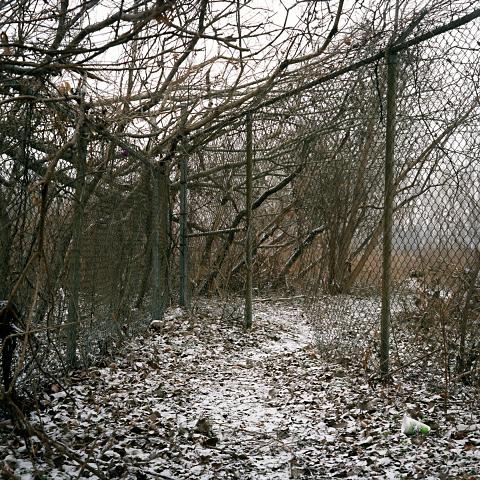
Sur la trace du renard
Louis Perreault
_______________________
Conserving the self in a culture of productive narcissism
Rob Horning
The cluster of ideas, meanings, and implications associated with Web 2.0 has been amalgamating for the better part of a decade, steadily consolidating to the point where few would deny its cultural significance. The development of more sophisticated search engines and the promulgation of social media have combined to turn casual computer users into simultaneous producer-consumers with an ever-intensifying incentive to weave digital interfaces into all facets of their everyday life. The ubiquity of broadband access and the onslaught of gadgetry has allowed the internet to take on the characteristics of what autonomist Marxists like Paolo Virno and Toni Negri call the social factory, in which the effort we put into our social lives becomes a kind of covert work that can be co-opted by the tech companies that help us “share” and “connect.”
Those nice-sounding words mask the potentially exploitative aspects of the process. In “Free Labor: Producing Culture for the Digital Economy,” Tiziana Terranova argues that “the internet is about the extraction of value out of continuous, updateable work, and it is extremely labor-intensive.” Nicholas Carr has described Web 2.0 as “digital sharecropping,” a way of putting “the means of production into the hands of the masses but withholding from those same masses any ownership over the product of their work.” The internet thereby becomes “an incredibly efficient mechanism to harvest the economic value of the free labor provided by the very many and concentrate it into the hands of the very few.”
But if it is so exploitative, why do we bother with all the “sharing”?...(more)
_______________________
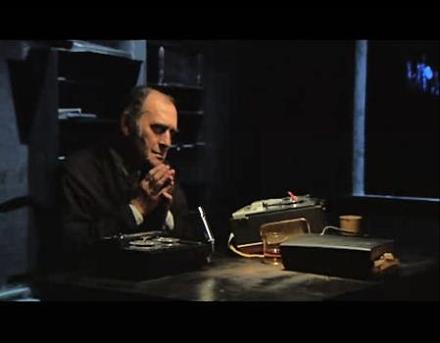
Krapp's Last Tape
Samuel Beckett
Harold Pinter
(2006)
ubu film
_______________________
UbuWeb's Top Fifteen for January
selected by WFMU
the longest-running freeform radio station in the U.S.
_______________________
"Q: Why did the Canadian cross the road? A: To get to the middle."
A Canadian Talks to Americans (And Anyone Else Who Will Listen) About Canada, In The Year 2012
Colin Eatock 3quarksdaily
If not bilingualism or the monarchy, then what are the real differences that separate Canada from the United States? Let’s start with the general political atmosphere in both countries. Canadian political thought has always stood to the left of the USA’s spectrum. An American politician who is considered moderately left-leaning (such as Barack Obama) would be a centrist in Canada; and a politician who might be described as strongly right-wing in the USA would be considered a nut-case in Canada. This is no small matter – and it has a deep impact on many aspects of Canadian society....(more)
_______________________
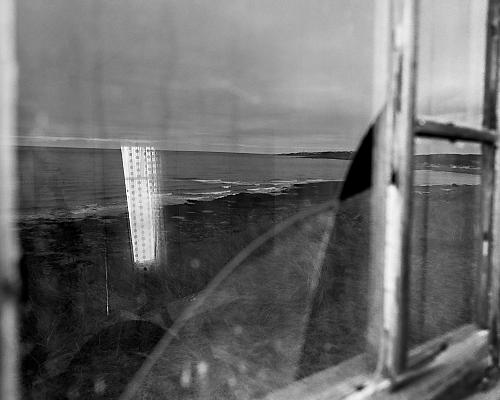
Trajectory
Louis Perreault
_______________________
Excerpt from Benediction
Charles Dodd White
Go to the waters to make all things new into nothing, to make found things lost again. The location of time is to be found within this slivering, this confusion of ice and current. The recognition of memory will be dug up from river bottoms, clawed free of the old burials, and you and I will coil like serpents in the tall grass, tongues seeking the truth of what we were and what we will become....(more)
The Bacon Review - January 2012
_______________________
Progress and Autism
Dan Patroc
Abstract.
Despite the fact that today the world of academic philosophy seems to have very precise rules and instruments for measuring the true success of authors, books, journals and so on, an impartial observer would get a feeling of deeply dysfunctional community. I go as far as asserting that our field (as well as other sciences taught in higher education) is showing clear signs of autism. With communication at extremely low levels and a high degree of isolation in small communities, people involved in academic philosophy are obsessively required to produce progress in their field, as it happens in applied science. It seems rather clear that if things continue this way the final result cannot be other than the total rejection of what drove philosophy onward for more than two thousand years.
Annales Philosophici 2 (2011)
_______________________
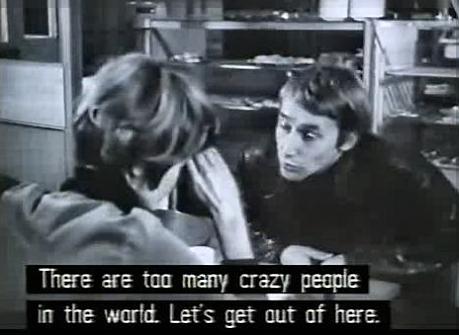
Duet For Cannibals
Susan Sontag
1969
ubu film
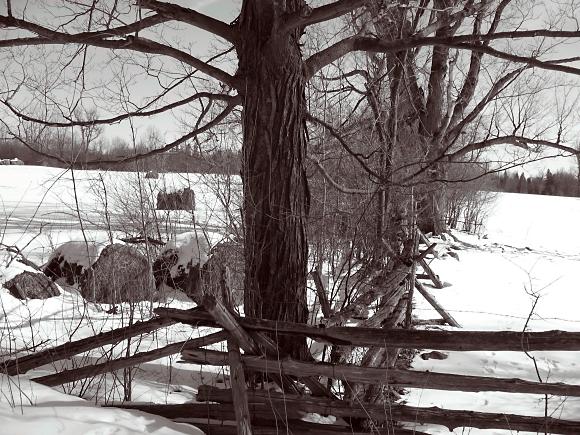
photo - mw
_______________________
Bliss
Robert Kelly
that’s a snow word a loaded word
gone west in our sinister acropolis
(in shadow of Ionic columns
rubbed her back on a pilaster)
because it is always appropriate
to walk slowly around a thing
holding a twig of pear tree in your fingers
lightly as if you’d gone to dowse
the intentions of the Coming Beast
(roll over, you’re snoring)
I need my coffee, religion
is too far from here in human weather
(teeth of ancient rhetoric, zeugma thee
with me or is it a much bigger bird
strouthos to hoist thy chariot to me)
pelt of a virgin, torque of a Celt
(what is gold? answer at the back of the book)
in fact love is exactly like algebra
but I can’t at the moment say why can you
liberty has something to do with it, solving
for two unknowns, but why in Arabic?
Children wait for politics to be over
...(more)
Robert Kelly at the Poetry Foundation
_______________________

Spiral Jetty
Robert Smithson
(Photo: Greg Lindquist)
A Winter Pilgrimage to Utah’s Spiral Jetty
Greg Lindquist
Robert Smithson, the Collected Writings
google books
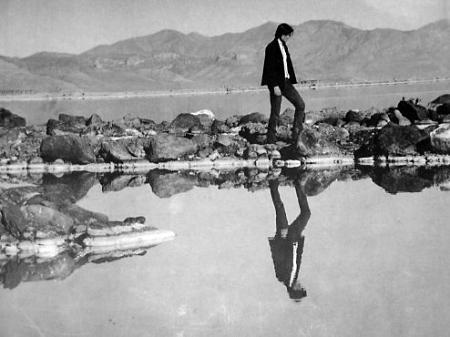
Robert Smithson
b.Jan. 2, 1938
_______________________
Nietzsche at the Mall: Deconstructing the Consumer
Daniel R. White and Gert Hellerick
ctheory
(....)
... if, in our quest for happiness through shopping, we should happen upon one of Nietzsche's works in the bookstore — they're curiously available, even in mass-market shops — and begin to peruse, would we be able to consume it, like any other product, and still retain our sense of security as free subjects empowered by the ubiquitous mechanism of the marketplace? For instance, what if we flip to section 488 of The Will to Power, where we read, of " 'The subject': interpreted from within ourselves, so that the ego counts as a substance, as the cause of all deeds, as a doer." This is clearly the Christian/Cartesian persona, the medieval and modern forms of the classical Platonic nous, the internal mirror of the noetic intellect into which shines the Sun and the paradoxically immaterial spectres of the Forms. But in section 490 of Nietzsche's tome we discover his considered view of the spectre: "The assumption of one single subject is perhaps unnecessary; perhaps it is just as permissible to assume a multiplicity of subjects, whose interaction and struggle is the basis of our thought and our consciousness in general... My hypothesis: The subject is a multiplicity."
Would these descriptions, spoken by the ghostly voice of the philosopher rising out of a consumer product in the mall, jibe with the act of consumption which awakened it? Which "voice from the commodity" is more compatible with the machinery of late-capitalist modernity? Is the unitary modern subject still viable, can it still speak, within the enveloping semeiotics of advertising, or is the postmodern multiplicity of selves more at home in the mall? Or, denying the binary terrors of this consumer dialectic, is there another alternative? ...(more)
_______________________
A Translation of "Wiedersehen" by Thomas Bernhard
Douglas Robertson
The Philosophical Worldview Artist
Whereas I for my part had always spoken too loudly and above all [uttered] the word drudgery always much too loudly, I said, it had always been characteristic of him to utter everything too softly , whereby we had made it difficult for each other the whole time that we were together, above all, when we, as was often our custom towards the end of winter, had gone into the forest, daily, as I expressly said, without [preliminary] ado, completely mute in [our] instantly understandable mutual understanding; we had accustomed ourselves to a rhythm of walking, which had corresponded to our rhythm of thinking and feeling, but more to my rhythm of thinking and feeling than to his and out of this rhythm of walking developed a completely correspondent rhythm of talking, above all in the Hochgebirge mountain range, where we had been so often with our parents, who twice a year would go to the mountains and always forced us to go with them to the mountains, even though we detested the mountains. He had hated the mountains every bit as much as I did and at the beginning of our relationship this hatred of ours for the mountains had been the means by which we were drawn closer to each other and ultimately for years and decades [it] had united us....(more)
_______________________

photo - mw
_______________________
Emma Goldman Occupies Wall Street
Vivian Gornick
One afternoon in mid-October a young woman—dressed in a white Victorian shirtwaist, long black skirt and rimless glasses shorn of earpieces—stood up in Zuccotti Park to announce that she was Emma Goldman and that she had traveled through time to tell those gathered in the park that she loved what they were doing. Nothing in the way of OWS street theater could have better invoked the spirit of the protest than the appearance of a principled anarchist, born nearly a century and a half ago, who never considered herself more American than when she was denouncing the brutish contempt in which capitalism held the feeling life of the individual.
“Feeling” was a key word for Emma Goldman. She always said that the ideas of anarchism were of secondary use if grasped only with one’s reasoning intelligence; it was necessary to “feel them in every fiber like a flame, a consuming fever, an elemental passion.” This, in essence, was the core of Goldman’s radicalism: a lifelong faith, lodged in the nervous system, that feelings were everything. Radical politics, in fact, was the history of one’s own hurt, thwarted, humiliated feelings at the hands of institutionalized authority.
(....)
If ever there was a life that embodied the spirit that is driving the Occupy Wall Street movement it is that of Emma Goldman, who went to jail in 1893 for having stood on a soap box in Union Square in the midst of one of America’s worst depressions and, pointing at the mansions on Fifth Avenue, implored 3,000 unemployed men and women to ask the ruling class for work. “If they don’t give you work,” she cried, “ask them for bread. If they deny you bread, take it!” These words made those listening to Emma erupt in thunderous cheers; they also made J. Edgar Hoover describe her in 1919 (when he was urging the government to deport her) as The Most Dangerous Woman in America....(more)
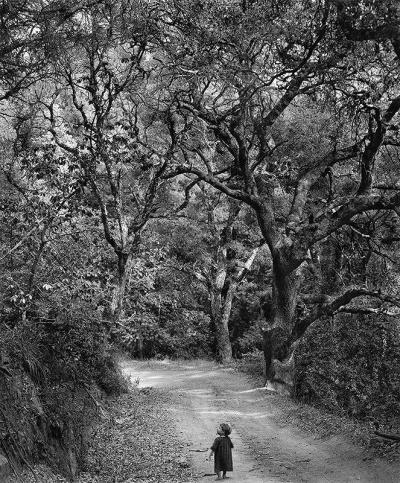
Child on Forest Road
Wynn Bullock
1958
1 2 3
_______________________
Crying in Early Infancy –100 Sonnets [pdf]
John Tranter
First published in 1977
39. Film Noir
A baby crawling over the rooftops is a movie
called The Thief of Paris. On the wet tiles
at night — whoop, he slips, there he goes — another
baby by the sea, he's trying to surf
and the water's rough, the pilot boat
straining at her moorings on the cruel deep
and a heavy swell lashing the rescue helicopter...
a breaker, and all his valiant efforts in vain.
Pondering these doomed historical necessities
we wonder at the lack of politics, and think
maybe it's a dialectical process: one baby
we're supposed to love, one to hate...
it's called Strain Your Brain, conversely
Put Your Head to Bed John Tranter at the Poetry Foundation and PennSound
_______________________
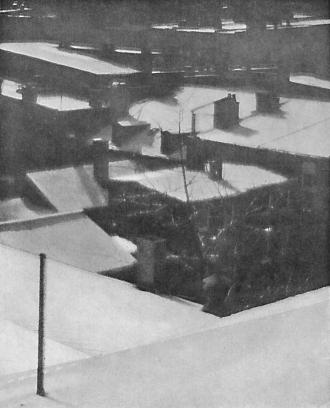
Snow Pattern
H. Remick Neeson
Pictorial Photography in America 1920
Project Gutenberg
via (OvO)
_______________________
House No. 451
Gyrðir Elíasson
Translated from Icelandic by Victoria Cribb
words without borders
(....)
... I’m always writing. Yet writing has become obsolete, a bit like an old house built in 2010, where no one now lives.
“Can’t you just give it up?” asks my wife, meaning my writing. She finds it bizarre; no one does it, especially not in a town like this.
“You know no one publishes books any more,” she adds.
“It doesn’t matter. I have to write.” I say it defiantly.
“Oh well,” she says with a sigh and carries on watching the 200-inch screen that covers almost the entire wall of our living room. No books are allowed on these walls.
*
I sit in my little room writing. I write by hand on paper, as people used to before. I’ve put aside my featherlite-computer; it will soon be obsolete anyway, like everything else. Every day something becomes obsolete. It’s a word we live in fear of nowadays. Every time the word is invoked people shrink with secret dread.
...(more)
Words without Borders
January 2012: Apocalypse
_______________________
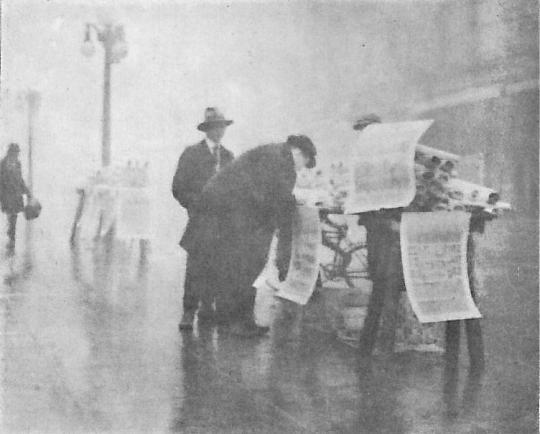
The New Year's Edition
Will H. Walker
_______________________
The Test of Writing
Spurious
(....)
The gods set the Trojan wars in motion to await the poet who would call upon the Muses to retell the events. But why did the gods, who saw everything, want to hear them told again? And what of the Muses, gods among the gods - why, if they were the ones who would give the poet the gift of song would they want to bring about the wars? Divine caprice? Or was it to hear the changes wrought by the poet, to experience the surprise of the events happening anew in the song?
Whatever the answer, we also find the equivalent in Blanchot's fictions. Claudia says in When The Time Comes, 'No one here wants to belong to a récit [a narrative]'; this phrase is repeated inWaiting for Oblivion. The conclusion (is it a conclusion?) of The Madness of the Day: 'No more récits, never again.' Helen and Alcinous suspect that what has befell them did so for the benefit of the singers in the greater halls - for Homer himself. Blanchot's characters want only to disentangle themselves from linear narration, letting the word récit, like the word writing, double itself up, naming at once a literary genre, and narration in general, and the non-narratable: the event that does not belong to the order of knowable, recountable experience.
No more récits - but why? Because there are no more gods. The Muses were said to be daughters of Zeus and Mnemosyne. Some asked how, if this were the case, the poet could call upon the Muses as eyewitnesses of what happened before the birth of Zeus. Inventive poets gave another genealogy for the Muses, claiming they were born from Uranos and Gaia, gods from an earlier stage in the theogony. The Muses would have to come first of all, else how could a singer like Hesiod compose his epic? But then the theogony can only reach back to the Muses, recounting their birth and their progeny. Before them, darkness, the forgotten....(more)
_______________________
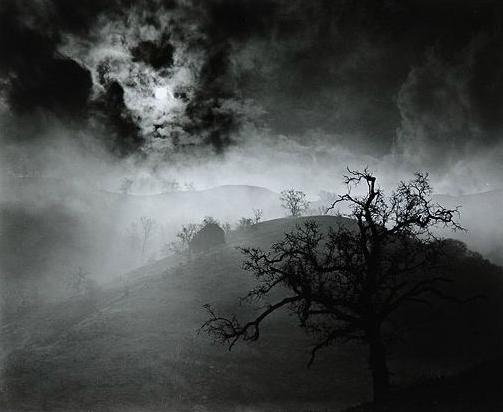
Wynn Bullock
1956
_______________________
Consider The Silence
Alan Fox
That open space which goes all the way back
to the beginning from the beginning
until you knew, a little at first
then more, then now.
Consider the silence which starts
when you don’t think any more
and first by second stretches
from there to far away.
Yet the silence which screams
begins when you first knew
will end when you do
and blankets the days and nights of your life.
from Rattle #35, Summer 2011
|

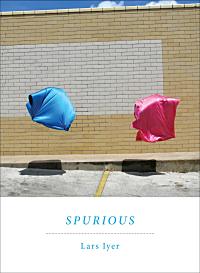


 The Age of Briggs & Stratton
The Age of Briggs & Stratton
































